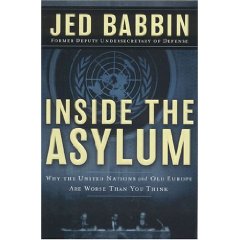This author, this book, are extraordinary. His is the kind of intellect that Harry Truman had in mind when CIA was created, with its motto, from John 8:32, regarding the importance of truth. Get the facts. This author is a master of the facts, and I am somewhat ashamed, having fallen prey to “facts” from others, that I should have to learn these facts from a Frenchman.
On every page there is an eye-opener, and what I came to realize is that this author is demonstrating what public diplomacy *should* be in America–on every single page he compares and contrasts what anti-Americans are claiming against America, what the real facts are, and what the facts are for Europe, where it is oh so fashionable to be critical of America when in fact Europe has done far less for the world, and for its own people.
Four facts stand out that bear emphasis, for they represent what this author has done so well with this book:
1) Europe provides four times the subsidies for its farmers than does America for American farmers.
2) Africa has received the equivalent of a hundred Marshall Plans since World War II, only to squander them all in corruption.
3) The US Senate rejected the Kyoto Treaty under Clinton, not Bush, and Clinton's executive order leaving Bush holding the bag as a deliberate political gambit.
4) There is a one to one correlation between globalization and the improvement of the lot of the poor in the least developed countries.
Now, having “accepted” some of this author's fact, which correct “facts” I had previously accepted, what really hit home with me is that we need to get all these facts on the table, subject to the collective intelligence of the people, and we need to do a much better job of communicating the facts to both our own domestic public, and the international audience. “Public diplomacy” in America stinks, in part because Otto Reich thinks he can do public diplomacy by assertion rather than by demonstration. Facts–open source intelligence–is what will work. The Department of State is not doing its homework, precisely because it refuses to be serious about open sources of information and the process of distilling information into overt intelligence.
The book is sometimes tedious but always rewarding. It is here that I learn that the Algerian terrorists were frustrated in 1994 in their plans to hijack an airplane and fly it into the Eiffel Tower. It is here that I see, explained in excellent context, the term “hyperterrorism.” It is here that I see discussed as some length the “myth of Muslim moderation,” and where I also see a persuasive condemnation of multi-culturalism and bi-lingual education.
I recommend this book be read in conjunction with Lee Harris, Civilization and Its Enemies: The Next Stage of History. Jean-Francois Revel helps us see the history of the past as we should: America with warts, but triumphant. Lee Harris helps us see the history of the future as we should: America at risk, unless it becomes ruthless at the same time that it faces reality.
This book has forced me to re-evaluate a great deal of what I took to be “scholarship” that I now realize needs to be subjected to much closer scrutiny. We need more facts on the public table. This book is a good starting point for all of us.
See also:
Fog Facts: Searching for Truth in the Land of Spin
Lost History: Contras, Cocaine, the Press & ‘Project Truth'
The Landscape of History: How Historians Map the Past
The Lessons of History: The Most Important Insights from the Story of Civilization










